Can automotive electrification succeed in the toughest rally of all, the Dakar? That's what Audi will try to demonstrate with the RS Q e-tron , an electric competition prototype…, but with a combustion generator.
The Audi RS Q e-tron almost seems straight out of Dr. Frankenstein's mind. Underneath its bodywork, reminiscent of other buggy, but peppered with futuristic details, we find parts from totally different machines.
The electric motors (three in total) came from its Formula E e-tron FE07 single-seater (competition Audi will abandon), while the combustion generator, needed to charge the batteries in the long stages, is the 2.0 TFSI from four cylinders inherited from the Audi RS 5 that competed in the DTM (German Touring Championship).
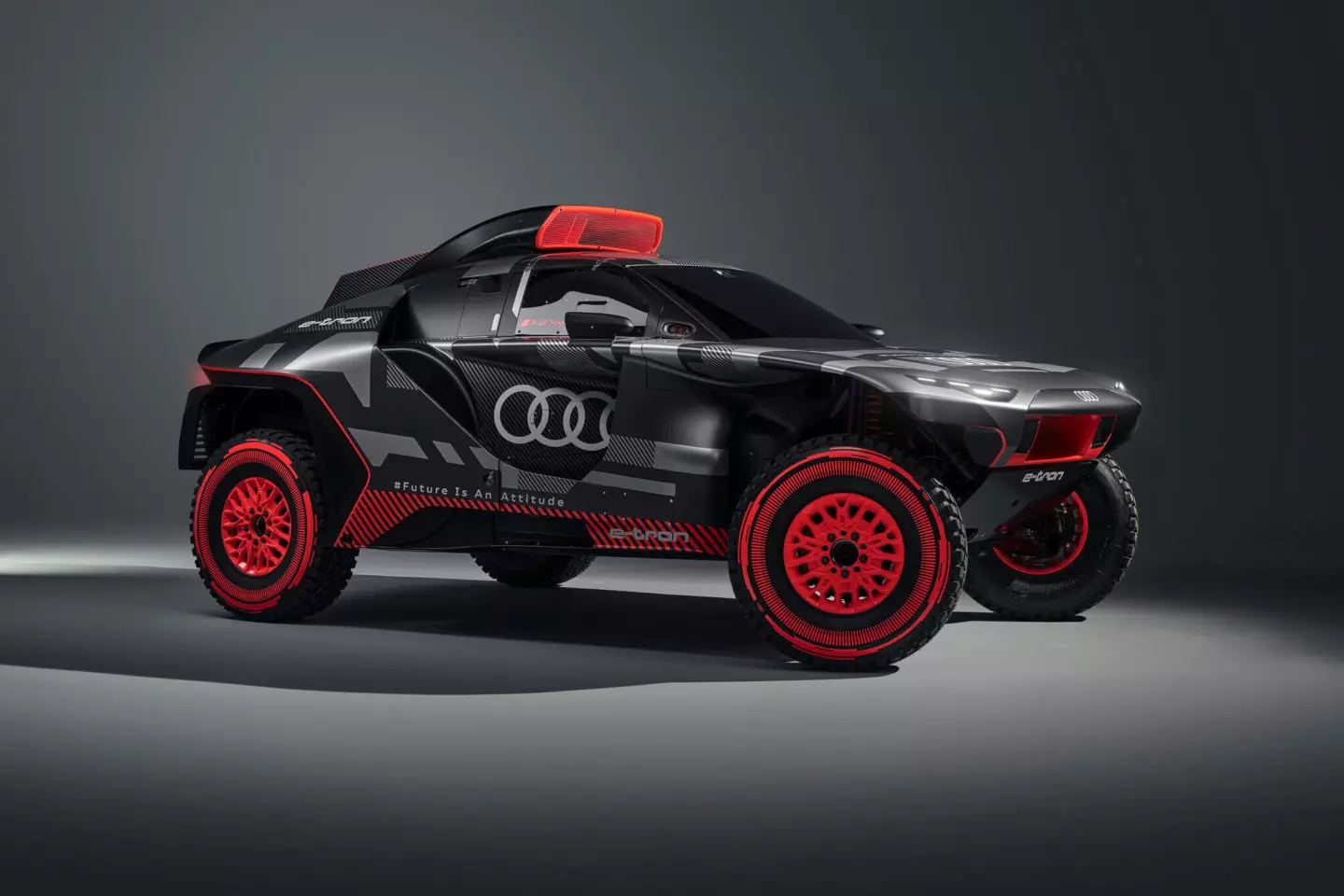
Charge battery in progress
As you can imagine, during the two weeks that the Dakar lasts there won't be many opportunities to connect the RS Q e-tron to a charger, and not to forget that a single stage can be as long as 800 km. Too much distance for the modest battery — developed in-house — of 50 kWh (and 370 kg) it comes equipped with.
The only solution to complete such distances is to charge the high-voltage battery in progress, justifying the installation of the 2.0 l turbo for this purpose. Audi says this combustion engine will operate between 4500 rpm and 6000 rpm, the most efficient operating range, translating to CO2 emissions comfortably below 200 grams for every kWh charged.
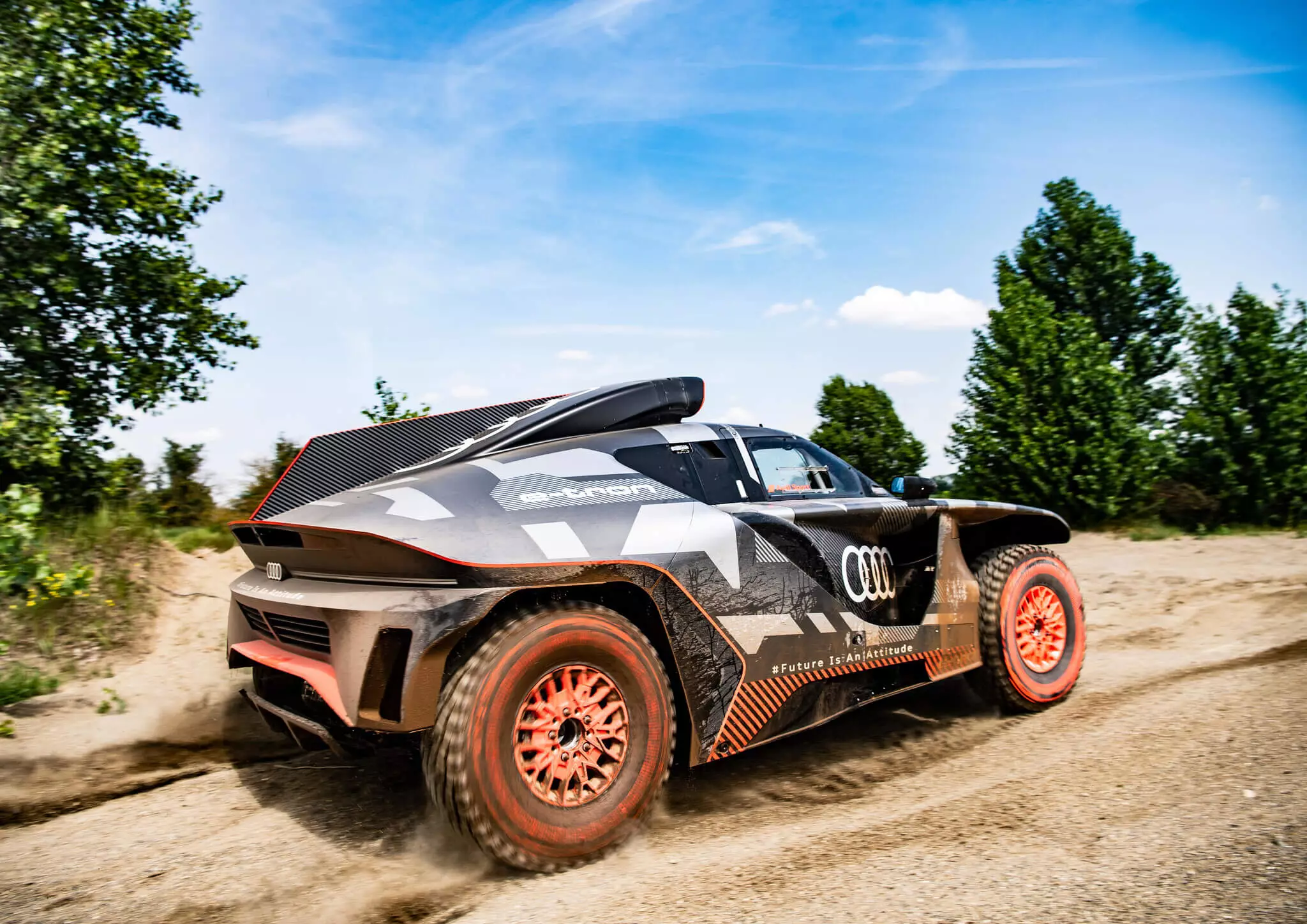
The energy generated by the combustion engine before reaching the battery will first have to be converted to electrical energy, which will be borne by an electric motor (MGU or Motor-Generator Unit). As an aid to battery charging, the RS Q e-tron will also feature energy recovery under braking.
Up to 500 kW (680 hp) of power
Motivating the RS Q e-tron will be two electric motors, one per axle (therefore, with four-wheel drive), which, says Audi, only needed to receive small modifications from the Formula E single-seaters to be used in this new machine.
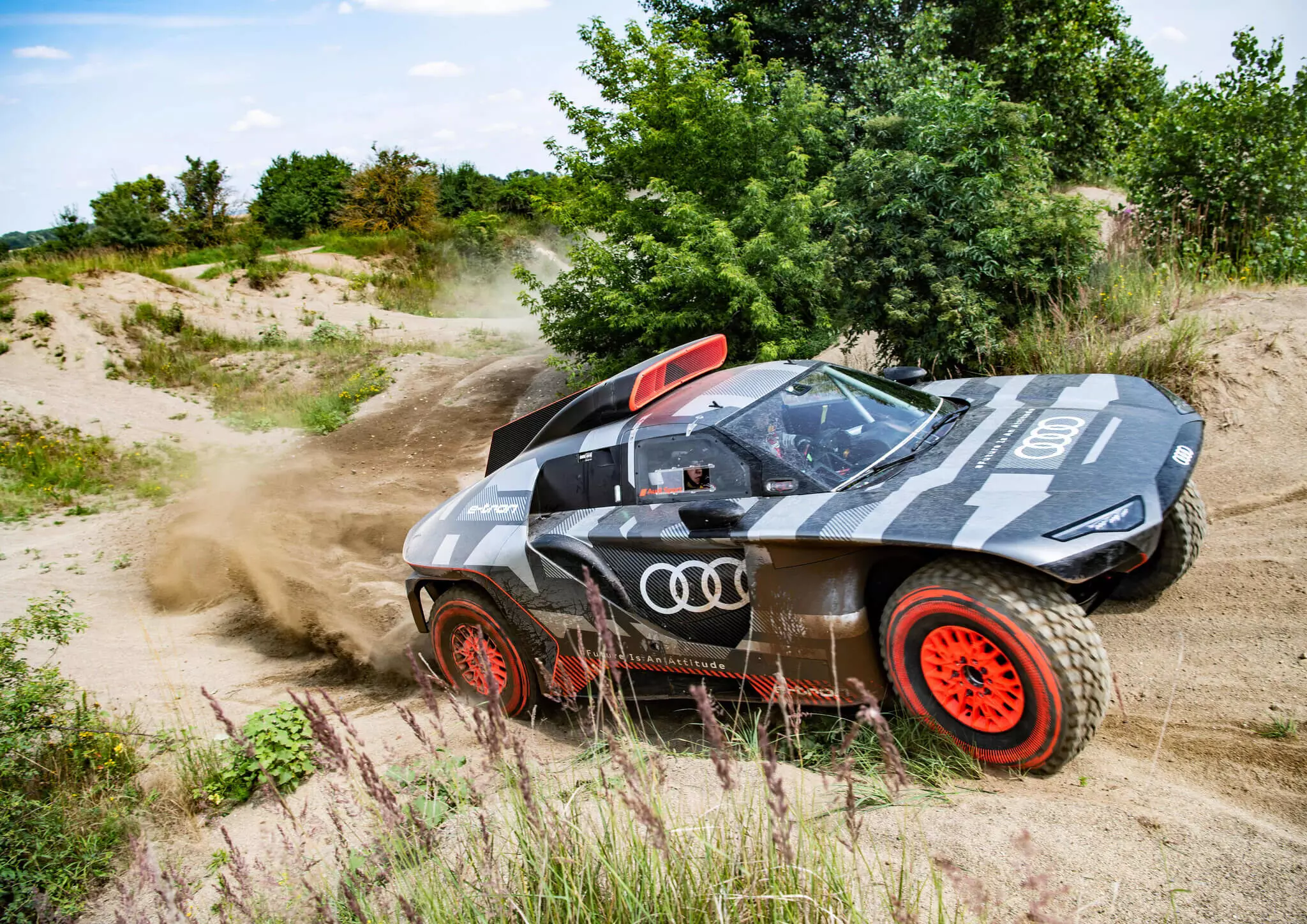
Despite the two driving axles, there is no physical connection between them, as in other trams. The communication between the two is purely electronic, allowing the torque to be distributed more precisely to where it is needed, emulating the physical presence of a central differential, but with much more freedom in its configuration.
In total, the Audi RS Q e-tron delivers 500 kW of maximum power, the equivalent of 680 hp, and as in so many other electric cars, it does not need a conventional gearbox — it only has a gearbox of one ratio. However, we will have to wait some more time to find out how much of this power can actually be used, while the latest revisions to the regulations are made.
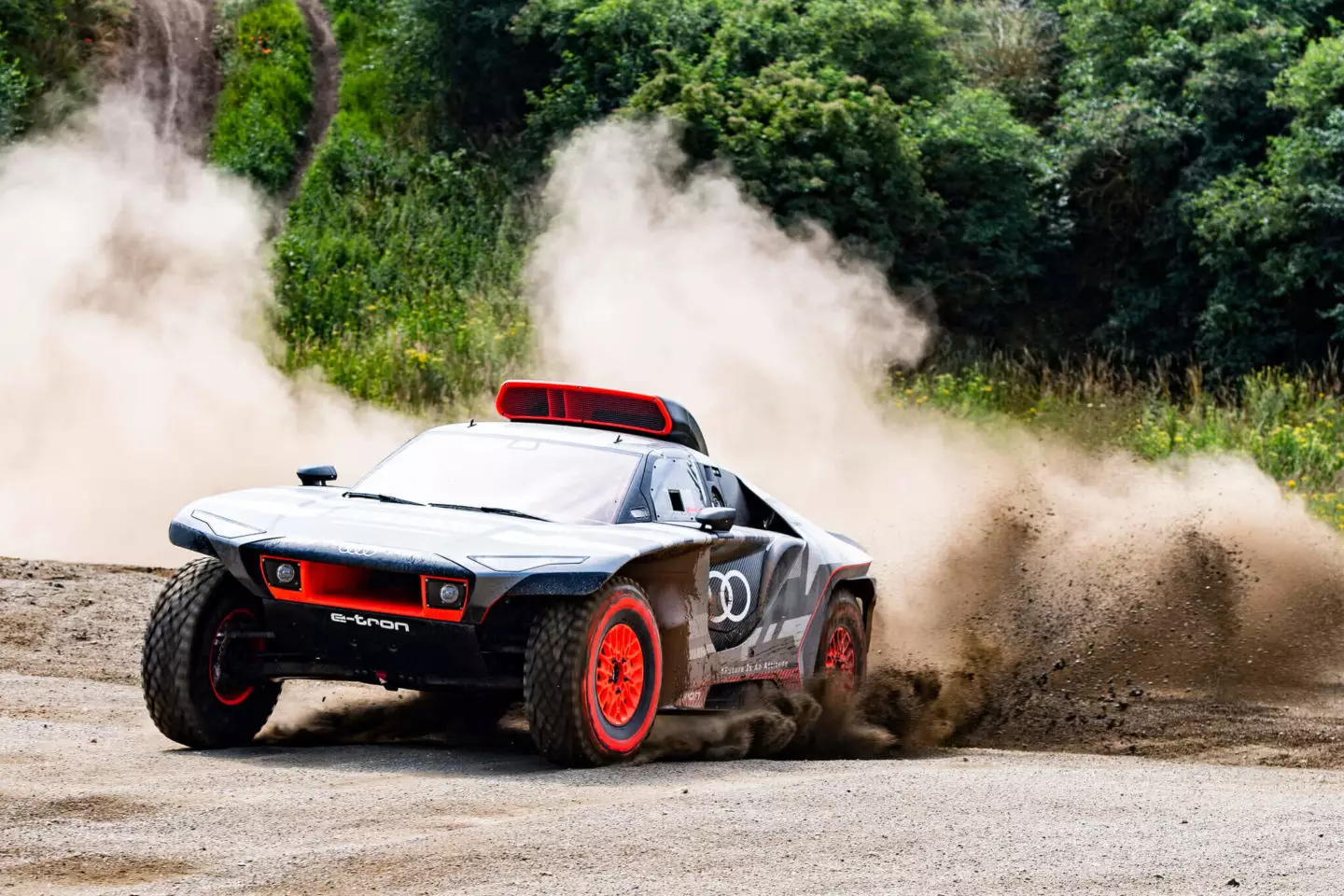
ambitious
The goals are ambitious for the RS Q e-tron. Audi wants to be the first to conquer the Dakar with an electrified powertrain.
But taking into account the short development time of this project — 12 months have not yet passed and the Dakar starts in January 2022 — it will already be a first victory to come to an end, as Sven Quandt, from Q Motorsport, Audi's partner in this project, points out. project, which compares this Audi project to the first alumni:
Sven Quandt, Director of Q Motorsport"At the time, the engineers didn't really know what to expect. It's similar with us. If we finish this first Dakar, it will already be a success."
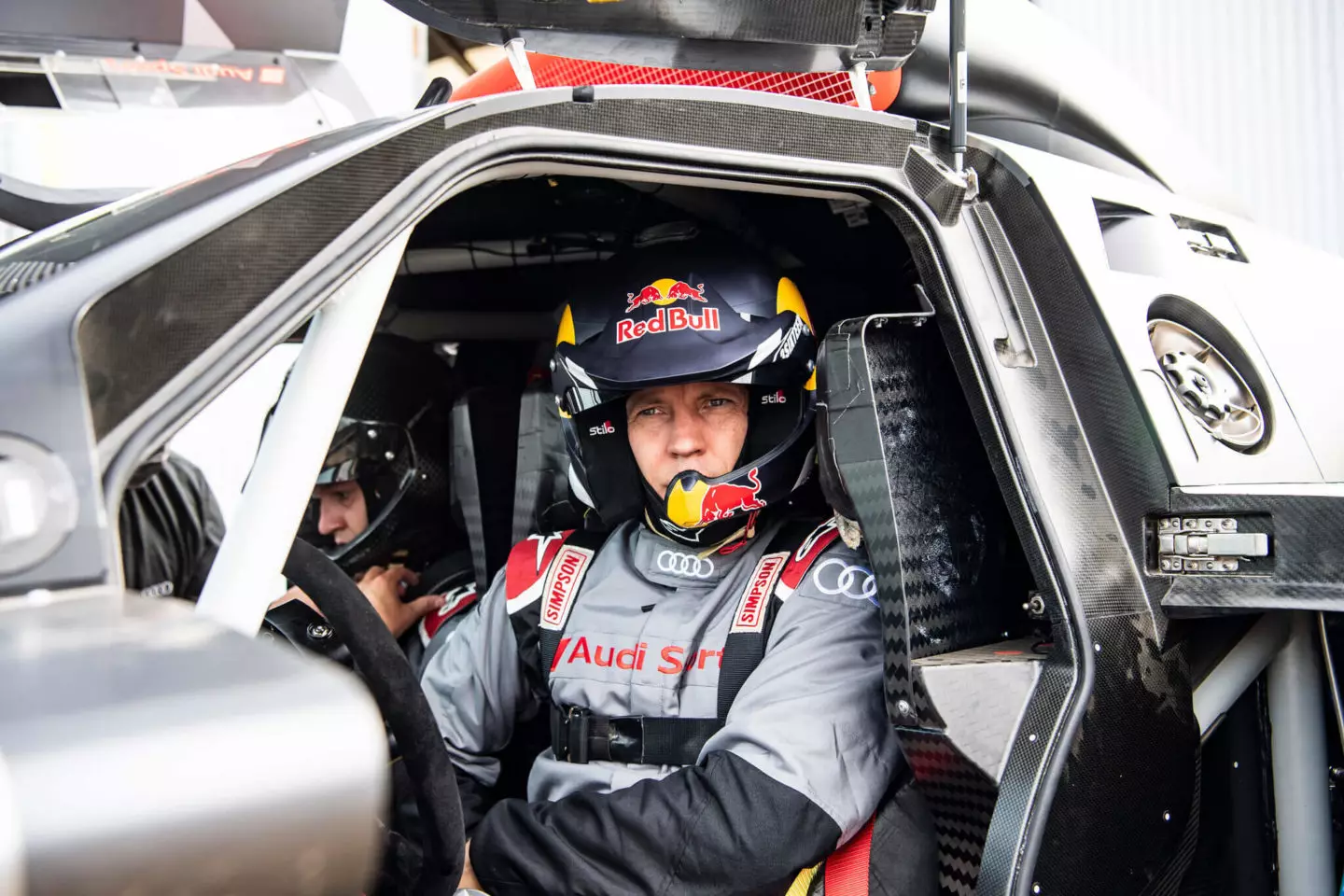
Mattias Ekström will be one of the drivers who will compete with the RS Q e-tron in the Dakar 2022.
Audi is no stranger to competitive technology debuts that have turned out to be victorious: from the first Audi quattro in rallying, to the first victory at Le Mans for a prototype with an electrified powertrain. Will it be able to repeat the feat on the Dakar?
